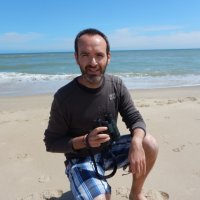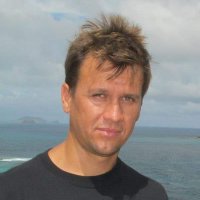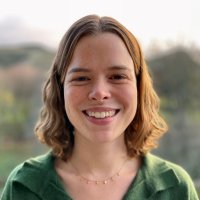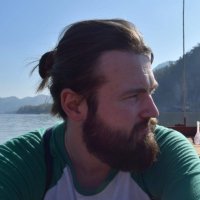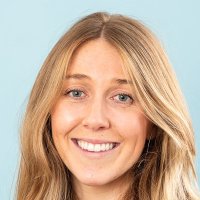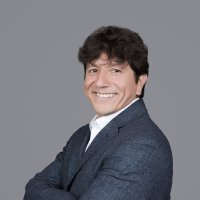The function of the Fisheries Development Oversight Committee (FDOC) is to develop the Fishery Peer Review process and fishery approval mechanism for certification, manage technical matters relating to the development, revision and implementation of the fisheries assessment criteria of the MarinTrust Standard, including the technical relevance and appropriateness of the programme for use as a Third Party, Accredited Certification Programme. To support the development and implementation of credible and robust certification standards for the marine ingredients industry that will provide assurance to the global supply chain that all Certified Sites to this programme act in a responsible and ethical manner.
Contents
- MarinTrust Fisheries Development Oversight Committee Members
- Fisheries Assessment Peer Review Group
MarinTrust Fisheries Development Oversight Committee Members
Chair:
Jose Peiro Crespo (Naunet, fisheries consultant)
Members:
- Pedro Veiga (Sustainable Fisheries Partnership)
- Polly Burns (Marine Stewardship Council)
- James Hinchcliffe (European Fishmeal and Fish Oil Producers)
- Caitlin Gilmour (Global Fishing Watch)
- Francisco Aldon (MarinTrust)
- MarinTrust secretariat: Emily McGregor (MarinTrust)
Biographies can be found below.
Jose Peiro Crespo is a marine biologist with more than 15 years of experience working in fisheries. During his career, he has worked as a fisheries observer, marine researcher, quality control auditor for aquaculture farms, EIA consultant for offshore windfarms, and fisheries and aquaculture consultant. He currently runs his own marine consultancy, Naunet Fisheries Consultants, where he has overall responsibility for the planning, execution, monitoring and evaluation of all the projects. Jose works for the fishing industry, NGOs, government bodies and other marine stakeholders conducting fisheries assessments, providing advice on the sustainable use of marine resources and developing initiatives to improve living conditions in coastal communities in Europe, Africa, Asia and South America.
Pedro is a fisheries scientist with over twenty years of experience working on fish population dynamics, recreational and commercial fisheries governance, and seafood sustainability standards. He currently heads the science, data and analysis programme of Sustainable Fisheries Partnership’s (SFP) Monitoring and Evaluation Unit. SFP is a non for profit focused on engaging and catalyzing global seafood supply chains in rebuilding depleted fish stocks globally and reducing the environmental impacts of fishing and fish farming. In recent years, part of Pedro’s work has been focused on research and data analysis related to SFP’s Target 75 initiative, which aims at ensuring 75% of world production in key sectors is – at a minimum – either sustainable (i.e., certified by the MSC program, or green-listed in SFP’s Metrics tool) or making regular, verifiable improvements. Pedro is the project leader of the Fishery Improvement Projects Database (FIP-DB), which is maintained by the Hilborn lab at the University of Washington (UW) and Sustainable Fisheries Partnership (SFP). Pedro is also a permanent member of the ICES Working Group on Recreational Fisheries Surveys (WGRFS) and in the data committee of the Certifications and Ratings collaboration.
Polly’s background is mainly focussed on seafood certification schemes and has been a member of the FDOC since 2021.
Polly has a degree in Marine Science from the Scottish Association for Marine Science in Oban, and having grown up in Scotland spent a lot of time by and in the sea. Previous experiences involve research and conservation of salmon on the River Spey, and working with the Scottish aquaculture industry to manage interactions with wild salmon. Polly spent nearly 5 years overseeing the fisheries and aquaculture audits across the seafood supply chain (including MainTrust) at Lloyd’s Register. Polly is now Head of Fisheries Standard Policy at the Marine Stewardship Council where she oversees policy development relating to scheme requirements and processes.
James Hinchcliffe is a dedicated marine scientist with a strong background in sustainable aquaculture. James holds a PhD in biology from University of Gothenburg and an MSc in Sustainable Aquaculture Systems from the University of Plymouth, UK. James’ work has spanned both the academic and industrial sectors, culminating in his current role with Marine Ingredients Denmark and the European Fishmeal and Fish oil producers, where he contributes to the responsible sourcing of fishmeal and fish oil. James is actively involved in fisheries science and certification schemes, working to promote sustainability and support the industry’s growth.
Caitlin is a professional in the fisheries and seafood industry sector, with over six years of experience working across the UK, Africa, Asia, and South Pacific Island States. Her experience spans sustainable fisheries management, supply chain due diligence, monitoring, control and surveillance, as well as stakeholder engagement and collaboration. Caitlin has led multiple complex international fisheries projects, and delivered impactful results for organizations like the World Bank, WWF, and Oceana.
Currently, as the Seafood Industry Manager at Global Fishing Watch, Caitlin oversees the seafood industry body of work, including the management of key external partnerships. She co-developed the Global Fishing Watch seafood industry strategy and provides guidance to regional teams on country specific industry strategies. She works closely with seafood industry stakeholders to enhance due diligence and risk assessment processes, focusing on illegal, unreported and unregulated fishing and labour concerns in the seafood supply chain. She also plays an integral role in Global Fishing Watch’s Data Ethics and Data Licensing Committees, ensuring responsible use and sharing of data.
Caitlin holds a Distinction in MRes Ocean Science from the University of Southampton, where her thesis focused on using stable isotope analysis to better understand environmental conditions that drive coral health and a B.Sc. in Marine Geography from Cardiff University.
Francisco has worked for MarinTrust, the leading certification programme for marine ingredients, since its early development within IFFO (The Marine Ingredients Organisation). He became the CEO of MarinTrust in 2020. With over 15 years experience in the food sector, specialising in marine ingredients, Francisco has a unique understanding of responsible sourcing, sustainable production practices, and digital traceability in the marine ingredient supply chain. This expertise has led to him joining various boards and committees, including the Global Dialogue on Seafood Traceability (GDST) Supervisory Board and the Global Sustainable Seafood Initiative (GSSI) Steering Board. He also contributes to the Technical Committee which is shaping the GSA Seafood Processing Standard. Since 2014, Francisco has worked with fisheries across Southeast Asia, Latin America, Europe, Africa, and the Middle East through the MarinTrust Improver Programme – driving positive legislative changes in previously struggling fisheries. All of this is part of his broader mission to secure the future of marine ingredients as vital and sustainable sources of nutrition for the world.
Francisco holds a degree in Fisheries Engineering from UNALM (Peru) and a MSc in Marine Ecology and Environmental Management from Queen Mary University (London).
Fisheries Assessment Peer Review Group
Fisheries Assessment Peer Review Group Fisheries Assessment Peer Review Group (FAPRG) members review the fisheries assessment decisions taken by certification bodies (CB), to ensure that the interpretations are in line with the objectives of the MarinTrust standard.
FAPRG members have a sound understanding of the MarinTrust Standard, fisheries science, fishmeal manufacturing, the food supply chain and environmental conservation. Advice on specific matters is also sought from fisheries scientists, when needed.
The FAPRG provides reassurance that the MarinTrust programme for assessment and approval of raw material used by the global marine ingredient manufacturing industry is credible and robust.
The outcome is assurance for the supply chain that raw materials from MarinTrust certified factories come from a responsibly managed fishery that has no risk of IUU activity within it.
Key Activities:
- Determine if a fishery meets the MarinTrust Standard
- Provide opinions on the conclusions reached by the CB in the fisheries assessment
- Comment on each clause’s score and rationale
- Provide input to the procedures and guidelines
Members of the Fisheries Peer Review:
- José Peiró Crespo - Naunet Fisheries Consultants - Spain
- RS Standards - Independent fisheries consultants - United Kingdom
- Kate Morris -Independent fisheries consultant - United Kingdom
- Mariano Gutiérrez Torero - Profesor de Acústica Submarina en Universidad Nacional Federico Villarreal - Peru

